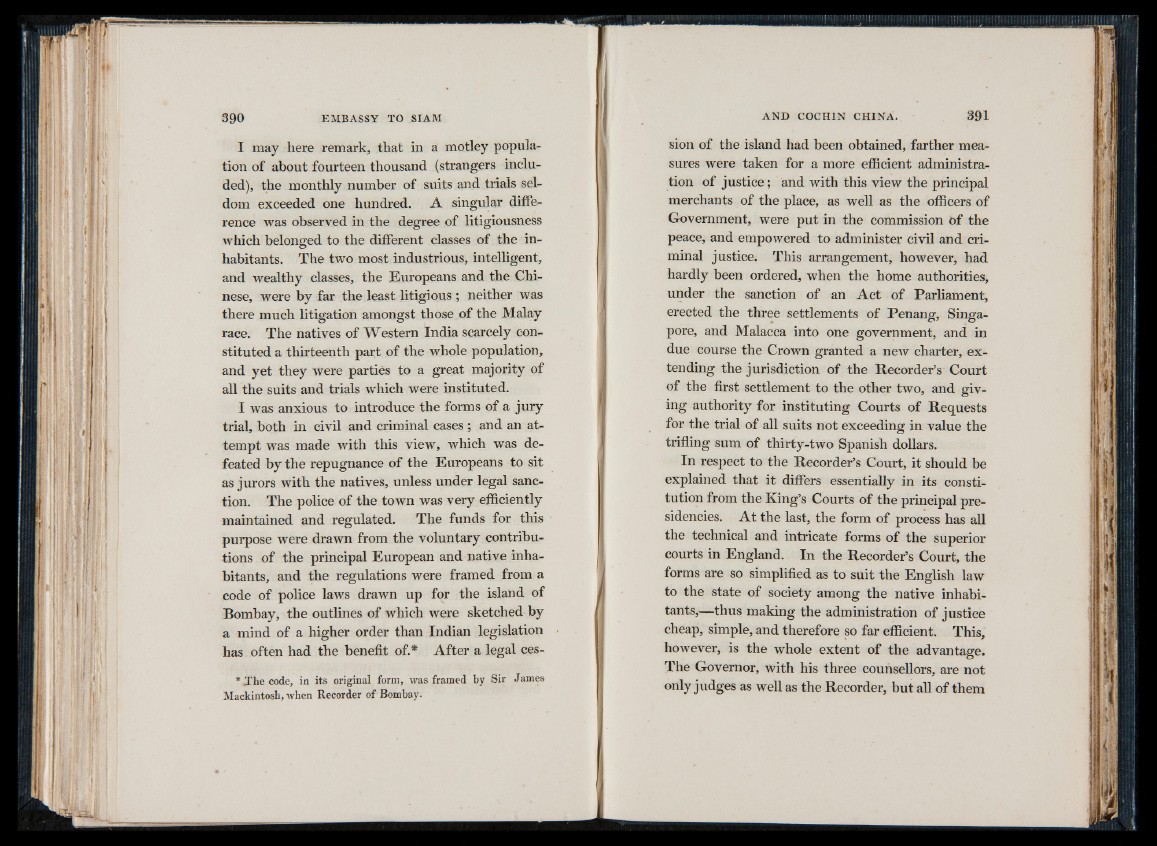
I may here remark, that in a motley population
of about fourteen thousand (strangers included),
the monthly number of suits and trials seldom
exceeded one hundred. A singular difference
was observed in the degree of litigiousness
which belonged to the different classes of the in-
habitants. The two most industrious, intelligent,
and wealthy classes, the Europeans and the Chinese,
were by far the least litigious ; neither was
there much litigation amongst those of the Malay
race. The natives of Western India scarcely constituted
a thirteenth part of the whole population,
and yet they were parties to a great majority of
all the suits and trials which were instituted.
I was anxious to introduce the forms of a jury
trial, both in civil and criminal cases ; and an attempt
was made with this view, which was defeated
by the repugnance of the Europeans to sit
as jurors with the natives, unless under legal sanction.
The police of the town was very efficiently
maintained and regulated. The funds for this
purpose were drawn from the voluntary contributions
of the principal European and native inhabitants,
and the regulations were framed from a
code of police laws drawn up for the island of
Bombay, the outlines of which were sketched by
a mind of a higher order than Indian legislation
has often had the benefit of.* After a legal ces-
* <Xhe code, in its original form, was framed by Sir James
Mackintosh, when Recorder of Bombay.
sion of the island had been obtained, farther measures
were taken for a more efficient administration
of justice ; and with this view the principal
merchants of the place, as well as the officers of
Government, were put in the commission of the
peace, and empowered to administer civil and criminal
justice. This arrangement, however, had
hardly been ordered, when the home authorities,
under the sanction of an Act of Parliament,
erected the three settlements of Penang, Singapore,
and Malacca into one government, and in
due course the Crown granted a new charter, extending
the jurisdiction of the Recorder’s Court
of the first settlement to the other two, and giving
authority for instituting Courts of Requests
for the trial of all suits not exceeding in value the
trifling sum of thirty-two Spanish dollars.
In respect to the Recorder’s Court, it should be
explained that it differs essentially in its constitution
from the King’s Courts of the principal presidencies.
A t the last, the form of process has all
the technical and intricate forms of the superior
courts in England. In the Recorder’s Court, the
forms are so simplified as to suit the English law
to the state of society among the native inhabitants,—
thus making the administration of justice
cheap, simple, and therefore so far efficient. This,
however, is the whole extent of the advantage.
The Governor, with his three counsellors, are not
°nly judges as well as the Recorder, but all of them